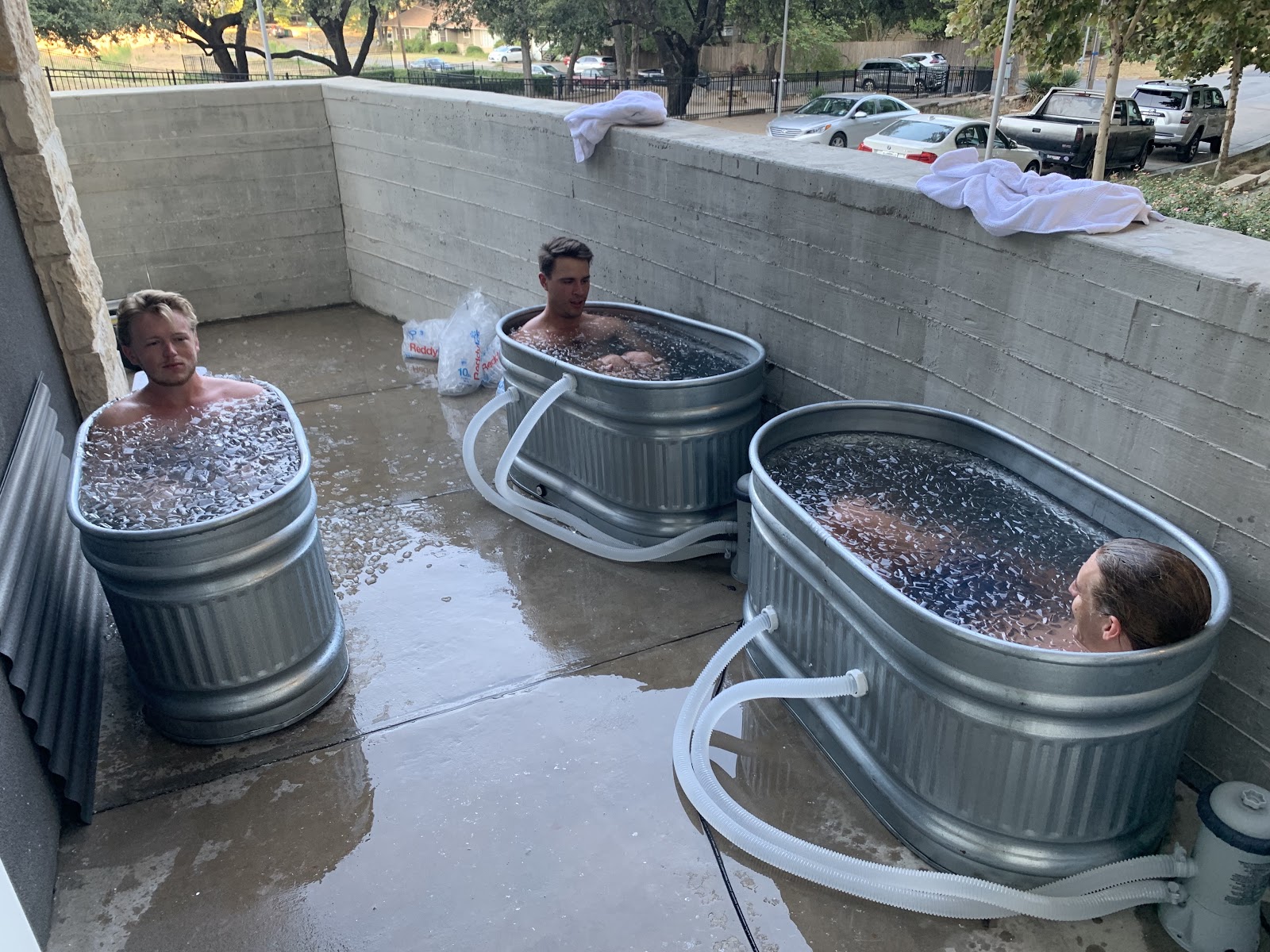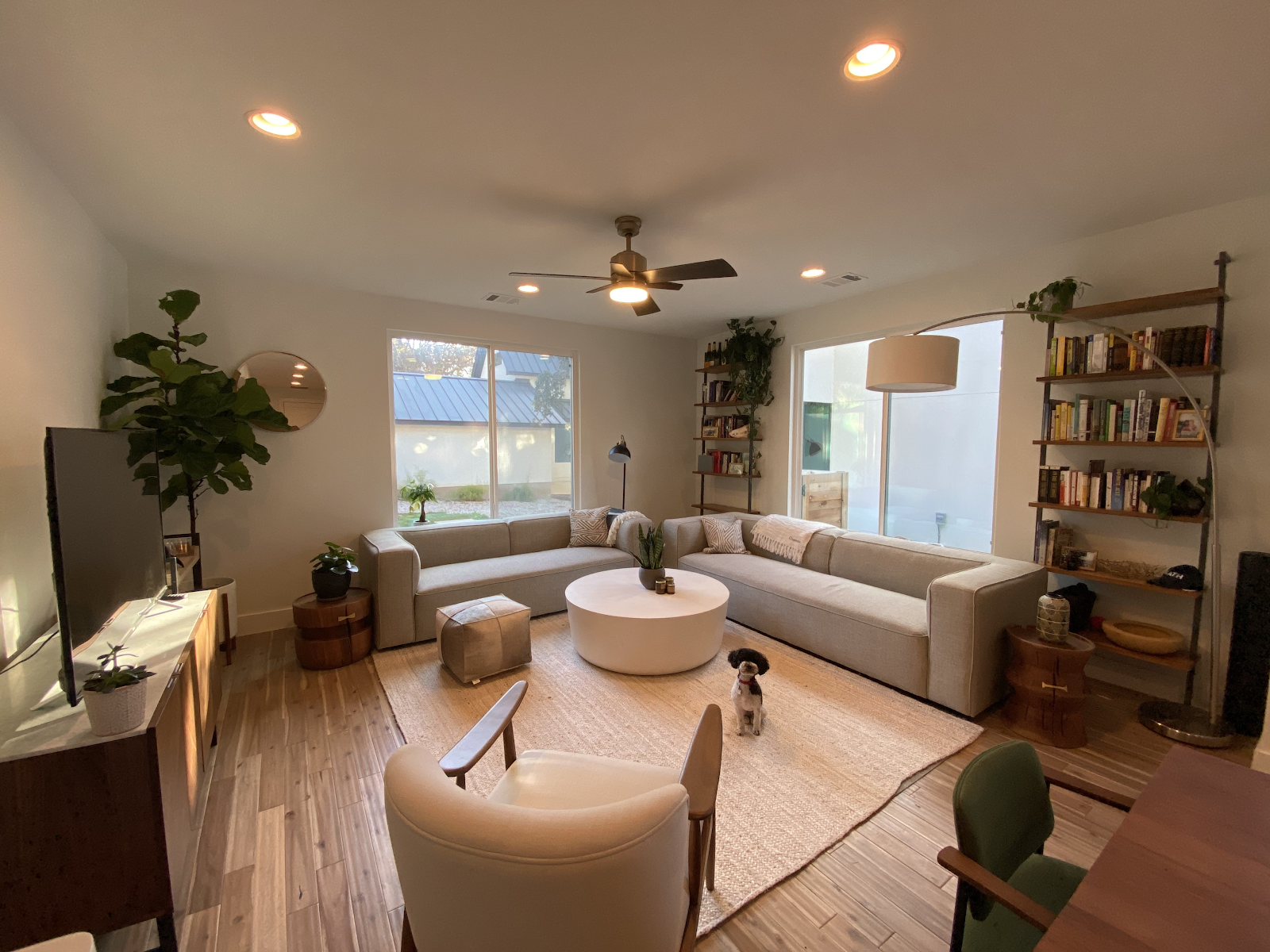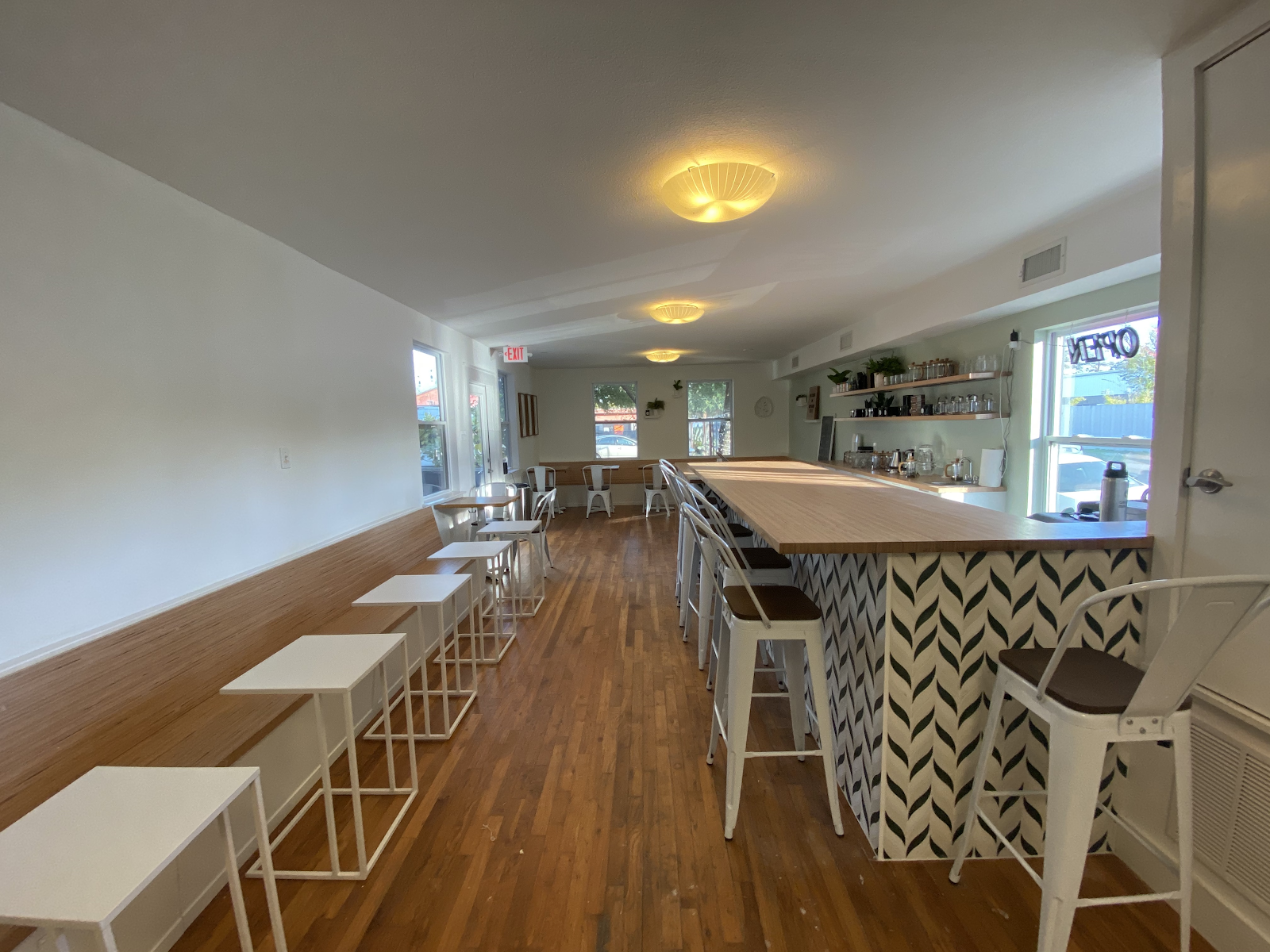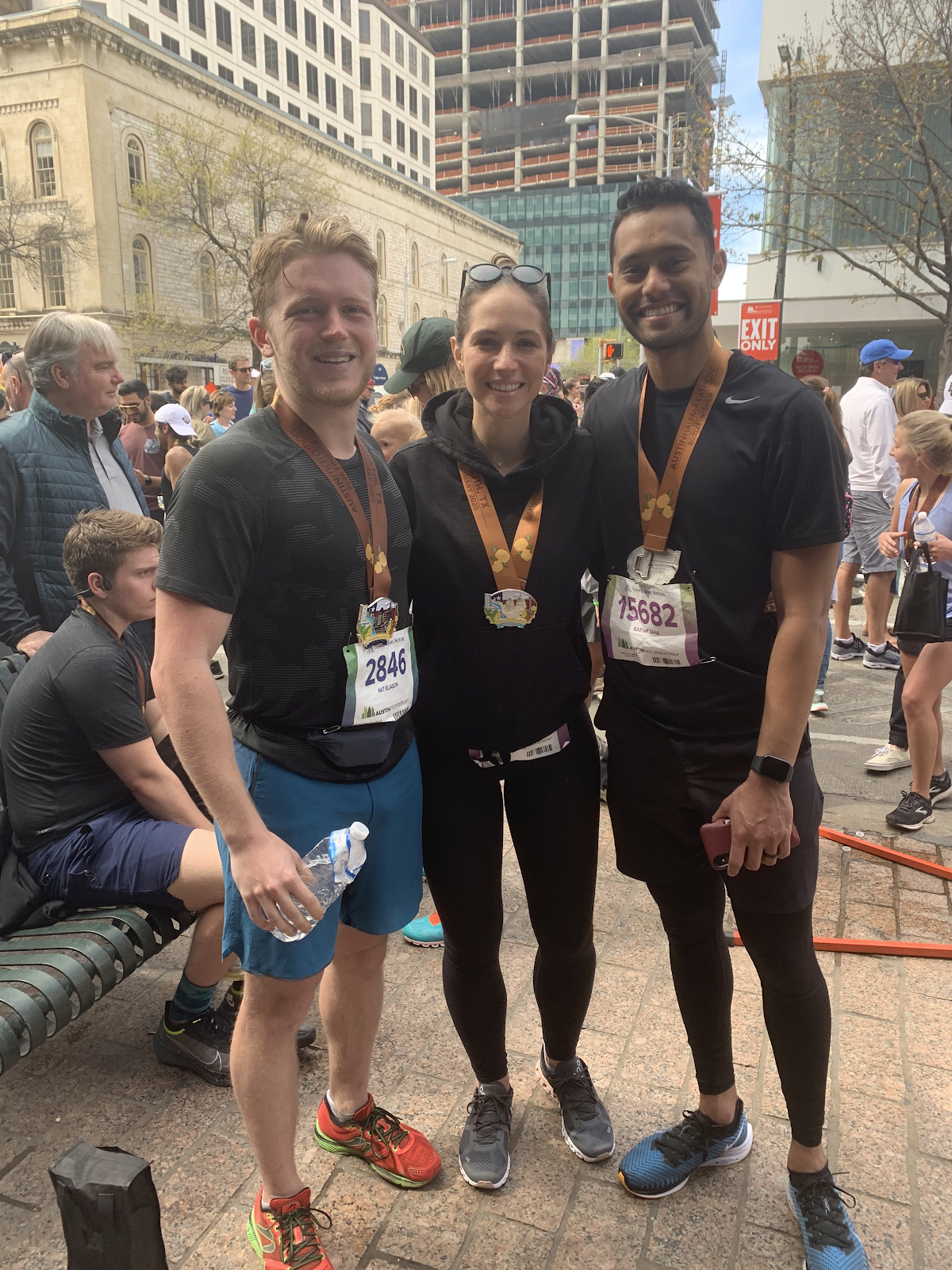5 Lessons from Year 27
This year was a little ridiculous. I somehow packed in a lifetime of big life events, without planning for hardly any of them. I don't say that to brag, I'm just kind of surprised looking back on it all.
In total in the last year:
- Cosette and I got married
- We bought a house
- We opened the Cup & Leaf Cafe
- I ran my first marathon, and got in some of the best shape of my life
- Growth Machine more than doubled
- Cup & Leaf more than doubled
- This site its best year ever, both traffic-wise and financially
- I made my first angel investment
It's weird though: Despite so many things happening, it never felt that crazy. There were pockets of craziness, sure, but it was mostly calm.
Many of the lessons I feel I got from this year are continuations from the past years. I'm really glad I started this tradition since it's interesting to see how my thinking has evolved the last couple years. Here's year 25 and 26.
So without further ado, and in no particular order, here are the big lessons from this year.
Build a Community

Hosting big events is great, but so is investing in building a more casual local community. One where you don't necessarily have to host anything. Where you spontaneously end up spending time with people.
When people say how much they miss college, I suspect this is a big part of it. Once you graduate college, it's much harder to walk into your friend's home and plop on their couch.
In "the real world" you typically have to schedule get-togethers with anyone you don't work with, or see at a third place like the gym. But there are ways you can hack it.
One of the best life improvements last year has been to have more standing events. Easy, repeatable, fun things to do with groups of people that you can do on the same day every week or two.
A few friends and I have been swimming in Barton Springs, a local natural spring in Austin, early in the morning most Tuesdays since last Spring. Even when it was nearly one of the coldest days of the year. We'd freeze our asses off, then go get coffee and bone broth at Picnik. It takes almost no planning, we all love it, and it works whether 3 or 10 people show up.
Other ways are having a spot a bunch of friends are members of like The Ocean Lab so you can go do a sauna and ice bath (pictured above). Or having a go-to local coffee shop you end up at each weekend morning, like the one by our house, where I almost always run into at least one person I know.
On that note, get to know the people who work at your favorite bars and restaurants. Your experience there will be improved dramatically if you learn the servers' names, get to meet the owners, and then try to find ways to help their business.
Opening the cafe has been a huge boon to having more community in my life. Mine and Cosette's friends know that we're there most days, and since many of them are also self-employed or remote workers, they stop by pretty regularly to co-work and hangout. A few of my friends have an office around the corner, too, so they'll stop by and we'll go for short walks to catch up over iced tea infusions. Though, opening a cafe is expensive and time intensive, so maybe the trick is to get one of your friends to open a cafe.
Finding these little ways to increase serendipitous time together, or super easy to plan get togethers, has probably been one of the biggest sources of happiness the last year. I'm really grateful Austin makes this so easy.
Make a Home

I don't think Minimalism is a healthy philosophy.
It's an unhealthy obsession with fighting your natural desire for a place that feels homey, out of some convoluted argument that you'll be happier by making yourself less happy.
This is why most people give up on the "digital nomad" live-out-of-a-backpack life. It's not a good way to be happy. It's a great way to look happy on Instagram, but eventually you have to realize that projecting happiness and being happy are not the same thing.
There's immense joy in investing in building a home for yourself, a joy that you don't get from renting. I understand the economic arguments that you (maybe) shouldn't buy a house, but I think you should ignore those if you have the means and forego some financial upside in favor of significant emotional upside.
It's a weird mental switch, owning a home. You'll have little things that annoy you about it, then you'll realize "oh wait I can do whatever I want to this thing." It's pretty neat. And you'll care way more about making it comfy, personal, well decorated, and a good place for hosting if you know you're going to be there for a while.
Not everything in your life has to be a financial maximization question. Save up and buy a house when you can. It feels great.
Plus it's a good excuse to buy more books.
Take it Slow

One big mistake I made this year was trying to grow Growth Machine too quickly. We took on a few big clients, and scaled up assuming that growth rate would continue. When it didn't, we were stuck in a bad situation, and it did some damage to the company's health.
The problem wasn't that the growth didn't continue, it was that I was trying to push us to grow faster than we needed to. I wanted to hit a specific revenue goal (a random number pulled out of my ass, basically) so I made bad decisions focused on hitting that goal, instead of taking this slowly and playing it safer.
Fast growth is really exciting for entrepreneurial types, but it's also dangerous if your downside isn't protected. It's easy to get caught up in the story in your head about how things will keep going as they have been and end up hurting yourself.
I've heard the same story from a bunch of other entrepreneurs, so maybe this is just something everyone has to learn themselves. But if you can catch yourself before you get into the same situation, more power to you.
There's also sometimes extra value in going slower. The cafe took 10 months to permit and build out. That's a massive amount of time, and we could have done it in 4-5 months if we had taken over someone else's cafe instead of designing our own.
But, then it wouldn't have been ours. It wouldn't have had all the nice little touches we love about it, so it was worth going slower to do it right. I think I need to apply that mindset in more places. It's hard, especially if you have a move fast and break things, minimal viable product mentality, but depending on what you're doing it's better to slow down.
Get a Coach
This was a phenomenal year for my personal fitness. I ran my first marathon and hit a new deadlift PR in the same week.

But I definitely would not have been able to do that if I hadn't started working with a fitness coach at Central Athlete. Having someone whom I was accountable to for making my workouts, and who cared about helping me hit my goals, was the big difference between sticking with what was at sometimes an insane fitness regimen on top of my other work.
If you're good at self-education and have some willpower, it's tempting to do everything yourself. Do your own fitness planning, do your own meal planning, figure out how to grow your business, improve your relationship, etc. But you're probably not the best person to do any of those things. You can hack it, and get it to 70-80% of the way there, but if you want to get serious, you need help.
I learned this the hard way with getting the sales process out of my head at Growth Machine. It took about 8 months, and I unfortunately failed to properly hire and train two people, before I got it right, and the only reason I eventually got it right was I hired a really good coach to help me do it.
The same could be said for improving my personal output. Despite having some very popular articles on productivity, hiring a performance coach for six months was a great investment.
At some point, the DIY attitude that might have made you successful stops being helpful. What got you here won't get you there. You need to have the humility to recognize when you've reached the limits of your current skill level, decide if you're the best person to take yourself or your business to the next level in that area, and then if the answer is no, hire someone who is.
And the answer is usually no.
Sow the Seeds of Compounding Growth

Investing in your 401k is great, but creating stuff online is one of the best things you can do to expose yourself to potentially limitless upside.
I published fewer articles this year than any year since I launched the site, but the site still got more traffic, got more Medley subscribers, and made more money than any previous year.
A big part of that is thanks to the variety of content, and changes to Google's algorithm. Search Engine Optimization is a long game, that can be fraught with setback and sudden success, but over time, it tends to seriously pay off. That's part of why I like working on it for companies so much. Done right, and with patience, it has massive potential upside.
This is why I tell so many people, especially young people, to just start talking about whatever they're doing and learning online. You don't have to be good at it or know what you're talking about, just start. When I look back at some of my first articles, they're pretty bad, but they got me in the habit. And now 5.5 years since I started this site, it's the main source of business and money for everything else in my life.
But it didn't start there. And starting something with the potential for exponential growth always sucks. You might not even get that growth.
But you definitely won't get it if you don't start.
That's all for this year, on to the next one!

